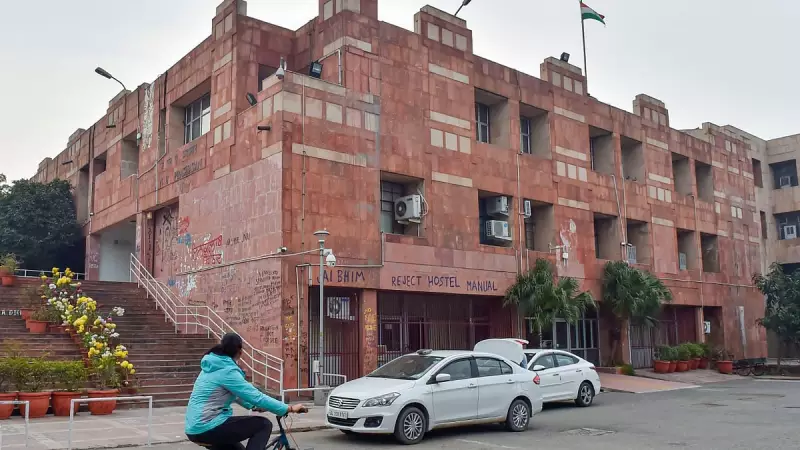
Students at Jawaharlal Nehru University have physically removed a controversial facial recognition system installed at the university's central library, sparking a major confrontation between the student body and administration.
The Library Confrontation
According to university officials, the incident occurred when a group of students entered the library and disconnected the facial recognition equipment that had been installed for security purposes. The JNU administration has since taken serious note of the incident and has directed the chief of security to submit a detailed report about the entire episode.
The facial recognition system was part of the library's security infrastructure, designed to monitor and control access to the facility. However, students have consistently opposed the implementation of such surveillance technologies on campus, citing privacy concerns and potential misuse.
Administration's Response and Security Measures
University authorities have confirmed they are investigating the matter thoroughly. The administration's decision to seek a comprehensive security report indicates the seriousness with which they view the removal of the surveillance equipment.
This is not the first time JNU has witnessed conflicts over surveillance systems. The university has been a battleground for debates surrounding privacy rights versus security needs, with students often challenging administrative decisions they perceive as infringing on their fundamental rights.
The installation of facial recognition technology in educational institutions has become increasingly controversial across India, with privacy advocates arguing that such systems create a surveillance environment that undermines the democratic spirit of educational campuses.
Broader Implications for Campus Privacy
The incident at JNU reflects growing tensions between educational institutions adopting advanced surveillance technologies and students resisting what they see as unnecessary intrusion into their privacy. The confrontation raises important questions about the balance between security and individual rights in academic settings.
Student organizations have repeatedly expressed concerns that facial recognition systems could be used to monitor and track student movements, potentially stifling dissent and peaceful protest on campus. The removal of the system represents a direct action against these perceived violations.
As educational institutions increasingly turn to technological solutions for security management, the JNU incident serves as a significant case study in how student communities are pushing back against surveillance infrastructure they haven't consented to.
The university administration now faces the challenge of addressing security concerns while respecting student privacy rights and maintaining the campus's democratic character that has long defined JNU's identity.





